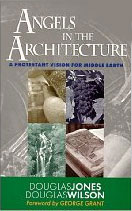Apr
9
2009
“All that we see on this earth is symbolic reality, and only as our inward heart is purged from sin can we see the symbolism. That is why when a man is in Christ Jesus he is a new creation, and he sees everything in the common world as symbols—unseeable realities.”
“God guides us stage by stage, and the most marvellous stage of His guidance is by symbols. A symbol represents a spiritual truth by means of images or properties of natural things. A symbol is sealed until the right spirit is given for its understanding, and God’s symbols are undetected unless His Spirit is in His child to enable him to understand. What did the cloudy pillar by day or the fiery pillar by night signify to the hordes in the desert? Nothing more than the mystery of ever-varying cloud forms. To the children of God, they meant the manifested guidance of God. How a man interprets God’s symbols reveals what manner of man he is. How often we have to say with the Psalmist, “I was as a beast before Thee,” i.e., without understanding. How often the ass recognises that one of God’s angels is speaking before the so-called prophet on its back detects it.”
“God shifts His symbols and we know not why; but God is ever only good, and the shifting of one symbol means surely that another symbol is to guide us to a nearer grasp of Himself. When God, so to speak, has left a symbol, it becomes transparent, and has no further binding force. How sad it is under the sun to see men worshipping a symbol which has been abandoned by God. We are not to worship reminiscences; this is the characteristic of all other religions. The Bible religion is one of eternal progress, an intense and militant going on. Obedience to the voice of the Spirit within, the Word of God without and the suffering of tribulation all around, enable the child of God to hear God’s voice and recognise His changing symbols.”
From The Discipline of Divine Guidance by Oswald Chambers
http://www.bullartistry.com.au/pdf_bestill/011BeStill.pdf
Comments Off | tags: Oswald Chambers, Spiritual Growth | posted in Quotes
Apr
8
2009

The Friday night before my nineteenth birthday Mrs. Finucane sends me for the sherry. When I return she is dead in the chair, her eyes wide open, and her purse on the floor wide open. I can’t look at her but I help myself to a roll of money. I take the key to the trunk upstairs. I take forty of the hundred pounds in the trunk and the ledger. I’ll add this to what I have in the post office and I have enough to go to America. On my way out I take the sherry bottle to save it from being wasted.
I sit by the River Shannon near the dry docks sipping Mrs. Finucane’s sherry. Aunt Aggie’s name is in the ledger. She owes nine pounds. It might have been the money she spent on my clothes a long time ago but now she’ll never have to pay it because I heave the ledger into the river. I’m sorry I wrote threatening letters to the poor people in the lanes of Lamerick, my own people, but the ledger is gone, no one will ever know what they owe and they won’t have to pay their balances.
From Angela’s Ashes by Frank McCourt
“As far as the east is from the west, so far hath he removed
our transgressions from us.” Psalm 103:12
Comments Off | tags: Biography, Justification | posted in Quotes
Apr
8
2009
“Typology is a philosophy of history.
It is also a theory of meaning.
Typology is a historical theory of meaning, a theory of historical meaning.
That Matthew can say “Out of Egypt I called My Son” is fulfilled in Jesus isn’t evidence that Matthew was a midrashist. It’s not merely a hint about how to read the Old Testament. It’s a pointer to the character of history and the nature of meaning. Texts mean the way Matthew says Hosea’s text means; history’s contours are the contours that Matthew discerns in Hosea’s reference to the exodus.
Typology is the beginning of wisdom.”
–Peter J. Leithart, www.leithart.com
Comments Off | tags: Peter Leithart, Typology | posted in Biblical Theology, Quotes
Apr
8
2009
The Eternal Son came to earth and lived the Christian life . . . visibly. But pause for a moment. The Eternal Son is the second member of the Godhead (the Father, the Son, the Holy Spirit). Did it ever occur to you that your Lord . . . the Lord Jesus Christ . . . stated publicly that he could not live the Christian life? Of himself, he could not live the Christian life (John 5:30). Isn’t that amazing! (So, if you’re having a hard time, just consider John 5:30.) Now let us inquire of him, “How did you live the Christian life?”
Was the mainstay of his Christian life prayer and Bible study? He did pray, but was prayer the central pillar of his secret to living the Christian life? That just does not seem to fit, does it? The Son depending on prayer and Bible study to make it through the day?
Continue reading
2 comments | tags: Devotion, Gene Edwards, Grace | posted in Christian Life, Quotes
Apr
8
2009
“Recovering the Old Testament as a text in which Christians live and move and have their being is one of the most urgent tasks before the church. Reading the Reformers is good and right. Christian political activism has its place. Even at their best, however, these can only bruise the heel of a world that has abandoned God. But the Bible—the Bible is a sword to divide joints from marrow, a weapon to crush the head.”
–Peter J. Leithart, A House For My Name, p. 40.
Comments Off | tags: Old Testament, Peter Leithart | posted in Biblical Theology, Quotes
Apr
8
2009
“Progress in holiness can best be measured not by the length of time we spend in prayer, not by the number of times we go to church, not by the amount of money we contribute to God’s work, not by the range and depth of our knowledge of the Bible, but rather by the quality of our personal relationships.”
– Stephen F. Winward
Comments Off | tags: Devotion | posted in Quotes
Apr
8
2009
“A revival is nothing else than a new beginning of obedience to God.”
– Charles Finney
Comments Off | tags: Obedience, Revival | posted in Quotes
Apr
8
2009
 Before Jesus ascended into heaven, He assigned an apparently overwhelming task to His disciples (Matt. 28:18-20). Like many familiar words, these often just float by us. We think we understand them simply because we are accustomed to them.
Before Jesus ascended into heaven, He assigned an apparently overwhelming task to His disciples (Matt. 28:18-20). Like many familiar words, these often just float by us. We think we understand them simply because we are accustomed to them.
But an understanding of this passage must always be at the centre of any thought of a distinctively Christian culture — not because our Lord’s words are primarily concerned with politics, but because they are not.Following the Lord’s authority, one of the distinctives of Christian cultural understanding is that it is also minimally concerned with politics. The restoration of the nations is not, in any important sense, a political process. Rather, the process is one of baptism and catechism. The means given for the conversion of the heathen were the waters of baptism and the words of instruction. When the lessons have been learned, there will of course be some political consequences. But they will be minimal for the simple reason that the state itself, in a nation that has come to repentance, will also be minimal. For the Christian, the political realm is a creature to be redeemed, sinful like the rest of us and with a long way to go before it retires to more biblical proportions.
- Douglas Jones, Douglas Wilson, Angels In The Architecture, p. 201-202
Comments Off | tags: Baptism, Doug Jones, Doug Wilson, Postmillennialism | posted in Quotes
Apr
8
2009
 “It is most remarkable that not only in Revelation do we find large patterns of evidences befitting the AD 60s era, but also even many smaller details. It it surely no accidental similarity that allows us to find not only particular personages (Nero), cultural structures (the Jewish Temple), and historical events (the Neronic persecution and the Jewish War) that harmonise well with the Neronic era, but even time-frames for these that fill out the picture of the era of which John wrote. It can be no other than in the mid- to late AD 60s.”
“It is most remarkable that not only in Revelation do we find large patterns of evidences befitting the AD 60s era, but also even many smaller details. It it surely no accidental similarity that allows us to find not only particular personages (Nero), cultural structures (the Jewish Temple), and historical events (the Neronic persecution and the Jewish War) that harmonise well with the Neronic era, but even time-frames for these that fill out the picture of the era of which John wrote. It can be no other than in the mid- to late AD 60s.”
Kenneth Gentry, Before Jerusalem Fell, p. 255-256
Comments Off | tags: Apocalyptic, Jewish war, Kenneth Gentry, Nero, Revelation, Temple | posted in Quotes, The Last Days
Apr
8
2009
“The principal part of faith is patience.”
- George Macdonald
Comments Off | tags: Faith | posted in Quotes




























